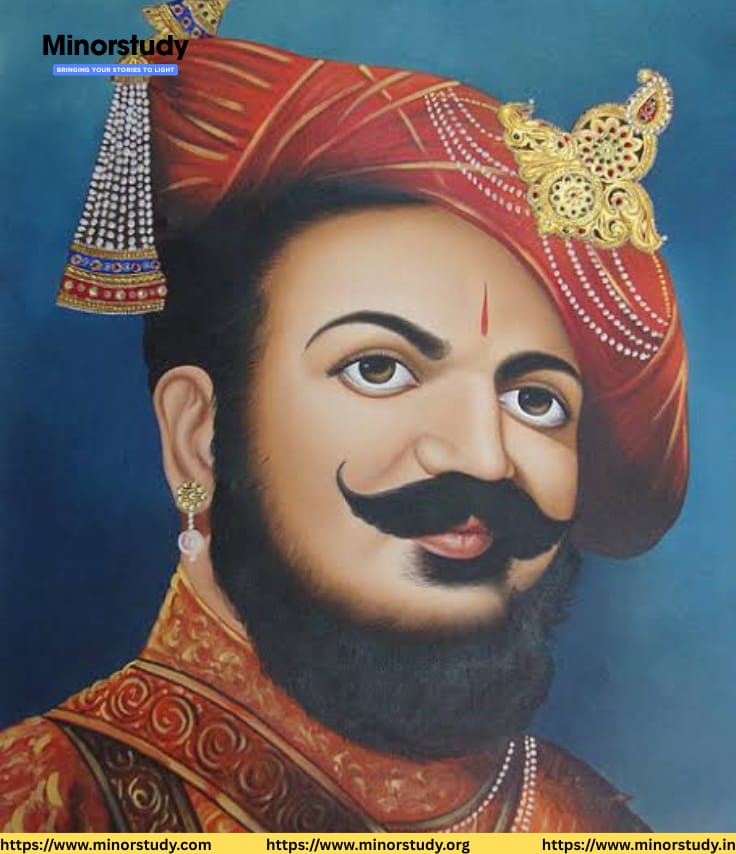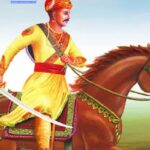🏇 All About Balaji Baji Rao: History, Facts, Timeline, Significance & Daily Life Impact
Balaji Baji Rao, also known as Nana Saheb, was one of the most influential figures in 18th-century India. He was the Peshwa of the Maratha Empire from 1740 to 1761, succeeding his father, Baji Rao I, a legendary military commander. Balaji Baji Rao expanded the Maratha influence across India and solidified its position as a dominant power in the subcontinent.
- 📜 History of Balaji Baji Rao
- 📅 Timeline of Major Events
- 🧠 Important Facts About Balaji Baji Rao
- ❓FAQs About Balaji Baji Rao
- 1. Who was Balaji Baji Rao?
- 2. What was his biggest achievement?
- 3. Why is he less famous than his father?
- 4. What caused the fall of the Maratha Empire during his reign?
- 5. What is his legacy today?
- 🌟 Significance of Balaji Baji Rao in Indian History
- 1. Expansion of the Maratha Empire
- 2. Institution Building
- 3. Cultural Renaissance
- 4. Political Diplomacy
- 💡 Important Points to Remember
- 🎉 Wishing and Observing His Legacy
- 🧭 Why Balaji Baji Rao Matters in Our Life Today
- 1. Model of Responsible Governance
- 2. Balance Between Power and Culture
- 3. Legacy of Leadership
- 4. Warning Against Overconfidence
- 🧬 Daily Life Impact
- 🏁 Conclusion: The Legacy That Echoes
This article explores his history, important facts, timeline, significance, daily life impact, observances, and why his legacy matters today.
📜 History of Balaji Baji Rao
Balaji Baji Rao was born in 1720 in the Peshwa family of the Maratha Empire. He was the eldest son of Peshwa Baji Rao I and Kashibai. Following his father’s death in 1740, he took over as Peshwa at a young age.
His rule marked a turning point in Indian history – the Maratha Empire expanded both territorially and administratively under his leadership. He was more of an administrator and statesman than a battlefield general like his father, but his contributions to Maratha power were equally vital.
He built alliances, managed finances, introduced reforms, and delegated military campaigns to efficient generals like Raghunath Rao, Malhar Rao Holkar, and Sadashivrao Bhau.
📅 Timeline of Major Events
| Year | Event |
|---|---|
| 1720 | Born in the Peshwa family. |
| 1740 | Becomes Peshwa after his father’s death. |
| 1741-1750 | Expanded Maratha dominance in Central India and parts of North India. |
| 1751 | Treaty of Bhalki, defeating Nizam of Hyderabad. |
| 1757 | Assisted in resisting Ahmad Shah Durrani’s invasion. |
| 1761 | Marathas suffer defeat at the Third Battle of Panipat. Balaji Baji Rao dies the same year. |
🧠 Important Facts About Balaji Baji Rao
Known as Nana Saheb – a name also shared later by the 1857 revolutionary.
Established Pune as a cultural and administrative center.
Built several temples and encouraged learning and Sanskrit education.
He was more inclined toward diplomacy, administration, and revenue reforms than warfare.
Instrumental in extending Maratha influence into Bengal, Delhi, and even Punjab.
Introduced structured governance, creating semi-autonomous regions under Maratha Sardars.
His reign saw the height and sudden fall of Maratha power due to the Battle of Panipat.
❓FAQs About Balaji Baji Rao
1. Who was Balaji Baji Rao?
Balaji Baji Rao, also called Nana Saheb, was the Peshwa of the Maratha Empire from 1740 to 1761, succeeding his father Baji Rao I.
2. What was his biggest achievement?
He expanded the Maratha Empire to its zenith, controlling nearly two-thirds of India before the defeat in the Third Battle of Panipat.
3. Why is he less famous than his father?
Because his reign ended with the catastrophic defeat at Panipat, and he lacked the military charisma of Baji Rao I.
4. What caused the fall of the Maratha Empire during his reign?
Over-expansion, internal politics, and underestimating the Afghan forces led to the defeat at Panipat, weakening the Maratha power.
5. What is his legacy today?
Despite setbacks, he laid the foundation of administrative systems and cultural patronage that influenced later Maratha and Indian governance.
🌟 Significance of Balaji Baji Rao in Indian History
1. Expansion of the Maratha Empire
Balaji Baji Rao’s tenure witnessed an unprecedented expansion of the empire. He extended influence into Rajputana, Gujarat, Bengal, and the Gangetic plains.
2. Institution Building
He emphasized a decentralized administrative system, allowing Maratha chieftains (Holkars, Scindias, Gaekwads) to manage territories independently.
3. Cultural Renaissance
He patronized temples, scholars, and educational institutions. Pune flourished as a hub of learning during his reign.
4. Political Diplomacy
Unlike his warrior father, Balaji relied heavily on political alliances, treaties, and power-sharing, which worked until military complacency set in.
💡 Important Points to Remember
Peshwa of Peak Maratha Power.
Ruled during critical years of transformation in Indian politics.
Not a battlefield general, but a strategic mind behind Maratha diplomacy.
Died of shock after hearing about the Panipat defeat.
His administrative reforms influenced future Indian governance.
🎉 Wishing and Observing His Legacy
Although not formally observed through national festivals, many Maratha descendants and cultural groups in Maharashtra and parts of India celebrate Balaji Baji Rao’s legacy through:
Historical seminars and plays.
Exhibitions in Pune museums.
Anniversary tributes and debates on Peshwa-era leadership.
You can honor his legacy by:
Visiting Pune and Shaniwar Wada (the Peshwa seat).
Reading historical accounts and biographies.
Sharing stories about Maratha resilience and governance.
🧭 Why Balaji Baji Rao Matters in Our Life Today
1. Model of Responsible Governance
Despite lacking military brilliance, he showcased how effective administration, education, and economic reforms can empower a nation.
2. Balance Between Power and Culture
Balaji Baji Rao balanced warfare with wisdom, encouraging cultural renaissance alongside political expansion.
3. Legacy of Leadership
His life teaches us that legacy isn’t just about victories, but about long-term contributions and vision.
4. Warning Against Overconfidence
The Third Battle of Panipat stands as a cautionary tale about the risks of under-preparedness and arrogance in leadership.
🧬 Daily Life Impact
Even in today’s world, his governance philosophy reflects in:
Decentralized administration models in India.
Emphasis on education and temple economics in rural governance.
The Maratha martial spirit that still inspires parts of Maharashtra.
In fact, policy-makers, history students, and leaders continue to reflect on his decisions to understand power dynamics, federalism, and failure management.
🏁 Conclusion: The Legacy That Echoes
Balaji Baji Rao may not have been the charismatic warrior his father was, but he was a visionary administrator, cultural reformer, and state-builder. His story is a powerful reminder that history is not just about victories and defeats—it’s about impact, intent, and the ability to navigate through chaos.
From the forts of Pune to the fields of Panipat, Balaji Baji Rao’s name resonates with both glory and grief, yet he remains a pillar in the saga of Indian resilience.









Some really nice stuff on this website , I enjoy it.
I am always thought about this, appreciate it for putting up.
There is noticeably a bundle to know about this. I assume you made certain good points in options also.